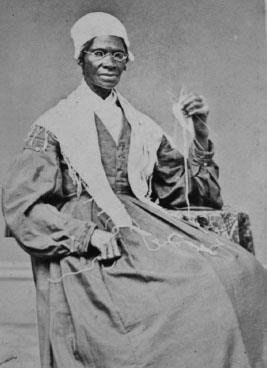ReligionWomen of Righteous Discontent |
How was Sojourner Truth involved in religious activities? |
Isabella Baumfree (1797–1883) took the name Sojourner Truth on June 1, 1843. Her decision came after one of her many religious visions. She was a member of the Zion Church in New York but had a mystical personality that could not be confined by a church structure, nor within a cult she joined for a brief period called the Mathias group. She set out on her own anti-slavery crusade, seeing it as “the secular counterpart of spiritual salvation.” This was a period when many who spoke out against slavery were fine orators, such as Frederick Douglass. Yet, Truth could well match his wit, wisdom, and eloquence. A licensed deacon in the Zion Church, Douglass ended one of his despairing speeches, which prompted Sojourner Truth to stand and stun the meeting by asking, “Frederick, is God dead?” Yet the two had a common bond: they linked abolitionism and the women’s suffrage movement. Like Douglass, Truth was in great demand as a suffrage speaker and attracted crowds of listeners. Her classic speech, “Ain’t I a Woman?”, attacked the views of men as well as white women for their neglect of the black woman’s plight. Although illiterate, Sojourner Truth captivated audiences with storytelling, singing of spirituals, and her remarkable knowledge of the Bible.

Born a slave, Sojourner Truth grew up to be an eloquent speaker against slavery, inspired by her religious visions and personal determination to end injustice.
